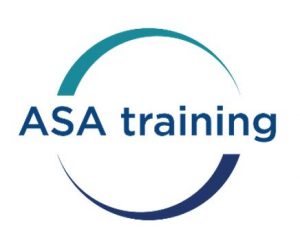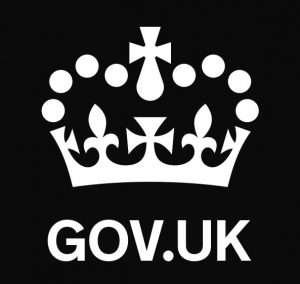Gender Equality and Equality and Diversity Statement
ASA Training Ltd is committed to promoting equality and diversity, providing an inclusive and supportive environment for all. This shall mean fairness for all: the recognition, development and use of everyone’s talents. This fairness will run through recruitment, selection, training, promotion, specialisation, and career development.
Through our Equality and Diversity Policy we will strive to ensure that:
Individuals are always given equality of opportunity.
No individual will be discriminated against on the grounds of age, sex, gender, colour, marital status, race, nationality or ethnic or national origin, religion, sexual orientation, Trade Union membership, hours of work, disability.
Ex-offenders will be considered on their merits as with other learners, though with any special criteria taken into account.
- By adopting a programme of action, we will seek to eliminate unlawful or unfair discrimination and promote positive action and ensure that everyone has a responsibility to adopt and embrace the
- We are committed to improving the economic prosperity of the area, a region rich in cultural diversity, and believe that through diversity, as an employer and a provider of learning and development, we can ensure inclusion and fair
- As an employer we will ensure recruitment, selection, appraisal, training, and promotion of staff is
- We are committed to effectively promoting equality and diversity and tackling all forms of discrimination.
- We will seek to ensure that all learners are provided with effective support to enable them to fulfil their potential and in so doing we will narrow any differences there may be in the achievement of different groups of
- We are committed to safeguarding young people and vulnerable adults, providing a working, and learning environment which enables individuals to
- We will ensure that learners enjoy and achieve, feel safe, are able to make informed choices about their health and well-being, empowered to make a positive contribution to their community and achieve economic well-being.
As a Provider of training and development, we will ensure open access to learning where individuals are recruited based on merit with progress and achievement monitored to ensure equality of opportunity.
ASA Training Ltd is committed to monitoring reviewing this policy to make it fully effective. This policy will be reviewed every 12 months.
Gender Equality and Equality and Diversity Policy
1. INTRODUCTION
ASA Training Ltd strives to be an Equal Opportunity Organisation. ASA Training Ltd recognises that in our society, groups and individuals have been and continue to be discriminated against on the basis of age, sex, gender/gender reassignment, colour, marital status, race, nationality or ethnic or national origin, religion, sexual orientation, Trade union membership, hours of work, disability, and ex-offenders.
The aim of ASA Training Ltd.’s Equality and Diversity Policy therefore is to ensure that no employee, job applicant, or learner receives less favourable treatment on the grounds stated above.
ASA Training Ltd is committed to taking positive steps to redress discrimination and to provide genuine equality of opportunity to enable us to make full and effective use of our workforce and to enable learners and staff to attain their full potential.
2. POLICY
The policy and its practice will be continuously monitored to ensure its effectiveness.
- ASA Training Ltd recognises that discrimination and victimisation is unacceptable and that it is in the interests of the Company and its employees to utilise the skills of the total It is the aim of the Company to ensure that no employee, job applicant or learner receives less favourable facilities or treatment (either directly or indirectly) in recruitment or employment on grounds of age, disability, gender / gender reassignment, marriage / civil partnership, pregnancy / maternity, race, religion or belief, sex, or sexual orientation (the protected characteristics).
- All employees, whether part-time, full-time, or temporary, will be treated fairly and with respect. Selection for employment, promotion, training, or any other benefit will be on the basis of aptitude and ability. All employees will be helped and encouraged to develop their full potential and the talents and resources of the workforce will be fully utilised to maximise the efficiency of the organisation.
- Our staff will not discriminate directly or indirectly, or harass customers or clients because of age, disability, gender reassignment, pregnancy and maternity, race, religion or belief, sex, and sexual orientation in the provision of the Company’s goods and
As an employer, ASA Training Ltd will operate the equality and diversity policy in the recruitment, selection, appraisal, training, and promotion of staff at all levels. Selection criteria and procedures will be monitored and reviewed to ensure that individuals are recruited and selected based on their relevant merits and abilities by ways that can be shown to be not discriminatory. All employees will be afforded the opportunity to undertake training appropriate to their present posts and future aspirations. It will use positive action to promote equality of access throughout its employment provision.
As a provider of training and development, ASA Training Ltd will offer open for access to its learning opportunities. Selection criteria and procedures will be monitored and reviewed to ensure that learners are recruited based on their relevant merits and abilities. Progress and achievement will be subject to monitoring and review to ensure that there is no discrimination.
ASA Training Ltd will:
- Ensure that people are treated solely on the basis of their abilities and potential, regardless of race, colour, nationality, ethnic origin, religious or political belief or affiliation, trade union membership, age, gender, gender reassignment, marital status, sexual orientation, disability, socio-economic background, or any other inappropriate
- Promote diversity and equality for learners and staff and value the contributions made by individuals and groups of people from diverse cultural, ethnic, socioeconomic, and distinctive
- Promote and sustain an inclusive and supportive learning and work environment which affirms the equal and fair treatment of individuals in fulfilling their potential and does not afford unfair privilege to any individual or
- Ensure that different groups of learners, whether that be in terms of gender, ethnicity, or disability, are provided with effective support so that they can achieve on par with all
- Challenge inequality and less favourable treatment and wherever
- Ensure individuals experience a level playing field for achieving
- Promote greater participation of under-represented groups of learners and staff by encouraging positive action to address
- Promote an environment free of harassment and bullying on any grounds in relation to all staff, learners, and
3 DEFINITIONS
- Direct Discrimination
Direct discrimination takes place when a person is treated less favourably than others (in the same circumstances) on the grounds of race, colour, national or ethnic origin, sex, gender/gender reassignment, marital status, sexuality, or disability.
3.2 Indirect Discrimination
Indirect discrimination means applying a condition or requirement, which adversely affects one particular group considerably more than another and cannot be strictly justified in terms of the requirements of the job.
3.3 Racial Discrimination
Discrimination on the grounds of colour, race, nationality (including citizenship), ethnic or national origins. Race may also cover some religious groups. The policy is directed towards the effect of racial discrimination in employment, and the combating of the disproportionately high unemployment this produces.
3.4 Sex Discrimination
Sex discrimination is discrimination on the grounds of a person’s sex or marital status. ASAT is committed to countering sexual discrimination against in all its forms.
3.5 Discrimination on the grounds of Sexuality
A person can be discriminated on the grounds of not being heterosexual. At present there is a prevailing view that heterosexuality and heterosexual behaviour is superior to any other form of sexuality. ASAT recognises that discrimination against lesbians and gay men is not always identifiable.
3.6 Discrimination on the grounds of Disability
This policy covers all people with disabilities who on account of injury, illness or congenital deformity may be handicapped in obtaining or keeping employment, or in undertaking work on his/her own account, of a kind which, apart from their injury, illness or deformity would be suited to their age, experience, and qualifications.
An applicant with disabilities shall not be disbarred from employment or learning on the grounds of disability, restricted access, or inadequate equipment, where, with reasonable efforts and expenditure, the problems could be resolved.
3.7 Age Discrimination
Age discrimination is the process whereby negative assumptions about age impinge on employment-related and other decisions. Whilst restrictions regarding age are sometimes necessary it is recognised that age discrimination is wasteful and aggravates the discrimination and disadvantage suffered on the grounds of race, sex, sexuality, and disability.
ASAT will ensure that age is not used as a formal or informal factor in recruitment, selection and promotion or learning and development issues except in clearly identified and considered cases.
Both young and older workers shall be encouraged to take advantage of opportunities for promotion as well as opportunities for learning and development.
3.8 Religious Discrimination
Religious discrimination in employment and learning is the process whereby a decision is predicated on account of a person’s religious observance belief or practice. Such a process is likely to increase the pressures which people from discriminated against groups are subjected to.
Except where it is permissible as· a genuine occupational qualification, there will be no discrimination on the basis of religion.
Where members of staff have particular cultural and religious needs which conflict with existing work or learning requirements ASAT will consider whether it is reasonably practical to vary or adapt these requirements to enable such needs to be met.
3.9 Gender/Gender Reassignment Discrimination
This is when you are treated differently because you are transgender. The treatment could be a one-off action or because of a rule or policy. It doesn’t have to be intentional to be unlawful.
The Equality Act 2010 says that you must not be discriminated against because you are transgender, when your gender identity is different from the gender assigned to you when you were born.
In the Equality Act it is known as gender reassignment. All transsexual people share the common characteristic of gender reassignment.
To be protected from gender reassignment discrimination, you do not need to have undergone any specific treatment or surgery to change from your birth sex to your preferred gender. This is because changing your physiological or other gender attributes is a personal process rather than a medical one
ASA Training Ltd believes that a person’s gender does not generally have any bearing on their ability or suitability for employment or learning opportunities
- ASA Training Ltd will encourage an openness of approach to all potential job applicants and
- Raise awareness and understanding of staff and learners
- Respect the sexual/gender orientation of all employees and learners
4 SELECTION, RECRUTIMENT AND PROMOTION
All posts at ASA Training Ltd will be open to all members of those groups discriminated against. Criteria and procedures will be altered and reviewed to ensure that individuals are selected, promoted, and treated on their relevant merits and abilities.
There will be no ceiling on the number of people from discriminated against groups who may be employed in any department.
Except where it is permissible as a genuine occupational qualification there will be no discrimination on the basis of religion.
ASAT will ensure that age is not used as a formal or informal factor in recruitment, selection, promotion or learning and development issues except in clearly identified and considered cases.
Recruitment
Draw up clear and justifiable job criteria (Role Description and Personal Specification) before advertising the position.
Advertisements and other recruitment literature need to be so constructed that they avoid the use of stereotypes and are not indirectly discriminatory. Where to place the advertisements is also a potential equal opportunities issue, e.g. who will/won’t have access to the information.
Select candidates for short listing in accordance with criteria from the person specification. At the selection interview, managers must ensure that questions, assessments, and judgement are in no way affected by discriminatory attitudes, whether on the grounds of sex, age, marriage or civil partnership, race, ethnic or national origins, disability, political or religious belief, sexual orientation, or gender reassignment/recognition status.
Reasonable adjustments to the recruitment process will be made as required to ensure that no applicant is disadvantaged.
5 TRAINING AND RETRAINING
ASA Training Ltd recognises the importance of employing more people from discriminated groups across all departments and at all levels including management. It will therefore ensure that where it is appropriate employees will be given special training and encouragement to achieve equality of opportunity including retraining for women after a break in employment.
No ceiling will be placed on the number of people selected for such training.
ASA Training Ltd employees are expected to comply with the EOP, and training will be given, if necessary, on aspects of the policy.
ASA Training Ltd will make all reasonable endeavors to provide facilities for disabled people, to provide equal opportunities to training, career development and promotion including special training needs.
Both young and older workers shall be encouraged to take advantage of opportunities for promotion as well as opportunities for training and development.
It is recognised that discrimination and prejudice will not cease merely as result of policy decisions. Training is an important part of strategies which are needed to change practices and attitudes. ASA Training Ltd intends to make available to all employees training, which will increase their awareness of discrimination and disadvantage suffered by various groups and how to positively counter negative attitudes.
6 HARRASSMENT
Harassment includes unreciprocated and unwelcome comments, looks, actions, materials, suggestions, or physical contact that is found objectionable and/or offensive and may create an intimidating working environment.
The Company’s view is that it is in everyone’s interests that the working environment encourages harmonious, respectful, and dignified working relations between individuals and indeed all employees. This policy and procedure sets out our approach to the handling of complaints alleging sexual harassment or bullying in or associated with the workplace together with the ways in which the Company will respond.
Sexual harassment is unwanted behaviour by colleagues which is of a sexual nature and which the recipient finds objectionable. Sexual harassment may be verbal, nonverbal, or physical in nature. Both men and women may be victims or perpetrators. Both are entitled to equal protection under the law and will be given equal protection by ASA Training Ltd.
Bullying may involve forms of physical or verbal assault, harassment, oppression, persecution, or intimidation. Bullying may be designed or have the effect of undermining the confidence and self-esteem of the victim. It may or may not be associated with elements of sexual harassment.
The policy of ASA Training Ltd as regards sexual harassment or bullying is:
ASA Training Ltd will not tolerate sexual harassment or bullying in or associated with the workplace in any form. Allegations against an employee or learner that they have been responsible for behaviour which constitutes sexual harassment or bullying will be dealt with via the Company’s published Disciplinary Procedure.
An employee or learner concluded to have been guilty in or related to the workplace of any act of sex discrimination, harassment or bullying is liable to serious disciplinary action, which could involve dismissal.
ASA Training Ltd.’s management team will act promptly to stop any sexually offensive behaviour and will take whatever steps are necessary to prevent such behaviour happening again.
The Company recognises that victims of sexual harassment or bullying may feel humiliated and intimidated and that it may be difficult for them to complain. Anyone who believes they have been the subject of sexual harassment will be treated sensitively. Appropriate assistance, for example counselling, will be made available in efforts to ameliorate any significant aftereffects or trauma associated with incidents of sexual harassment or bullying.
ASA Training Ltd.’s management team will encourage the development of a culture within the workplace which means that employees or learners will not feel threatened by instances of sexually harassing behaviour or bullying and will be able to challenge the perpetrators of such behaviour should it occur.
The Company will ensure that offensive material (e.g. literature, photographs, cartoons, data stored images, etc.) are not displayed or circulated within the Company and that the language in common use within the workplace is not offensive to either gender.
Each employee or learner has a duty to report any instances of sexually harassing behaviour or bullying which they witness, whether they themselves are the victim.
Prohibited Sexually Harassing Behaviour
An employee, learner, visitor, or subcontractor must not:
- Make threats or offer inducements to a person in association with sexual advances
- Touch, hold, grab, hug, kiss or make any other unwanted physical
- Stare excessively or pointedly at a person’s
- Lean or stand exceptionally or uncomfortably close to another
- Use offensive language, tell offensive jokes, make personal sexual comments, suggestions, or
- Circulate or display any offensive written material, images, calendars, or
- Victimise any member of staff who has lodged complaints of sexual
Prohibited Bullying Behaviour
- An employee, learner, visitor, or subcontractor must not:
- Make verbal
- Tell hurtful
- Publicly denounce or humiliate an
- Perpetrate any type of physical
- Apply undue pressure or coercion to any
- Withdraw co-operation from any individual or isolate
- Spread malicious
This list is indicative and not exhaustive.
Employees and learners are encouraged to read the separate policies for:
- Safeguarding
- Harassment and Bullying
- Cyberbullying
8 EMPLOYMENT PRACTICES AND CONDITIONS OF SERVICE
All service conditions will be reviewed to ensure that they do not discriminate against any particular group but provide for the varying needs of the entire workforce.
Employment practices will be adapted to meet the demands of childcare and the care of other dependents e.g. job share, paternity leave etc.
Where a member of staff is convicted of an offence arising solely by reason of his/her homosexuality (which would not be considered an offence for heterosexuals) it shall not be treated as an offence.
The cultural mode of dress of all employees and learners will be respected.
Where members of staff and learners have particular cultural and religious needs which conflict with existing work requirements ASAT will consider whether it is reasonably practical to vary or adapt these requirements to enable such needs to be met.
Where cultural and religious beliefs conflict with the primary aims and objectives of ASATS EOP the primary aims of the EOP shall prevail.
All staff and learners regardless of their age shall enjoy the full protection of ASAT’s EOP and avail themselves of the procedures agreed as part of the EO process to achieve their full potential.
It will be a condition of service that employees and learners adhere to the EOP and failure to
do so shall be cause for disciplinary measures to be taken.
9 ORGANISATIONAL REQUIREMENTS
It is the responsibility of all staff to actively promote equality of opportunity within their own sphere of responsibility.
10 RECORDING AND MONITORING
ASA Training Ltd is committed to an efficient and confidential monitoring system to ensure effective implementation of the policy.
11 COMPLAINTS
Should any learner or staff feel that they have been discriminated against during their time with ASA Training Ltd they need to ensure that the organisation is aware of their grievance in order that it can be investigated, and action taken where appropriate.
Staff should follow the grievance procedure within the company handbook.
Learners and/or employer should use the Complaints and disputes resolution process. If they would rather talk to a member of ASA Training Ltd, they can either ring the head office or speak to their Assessor. The process will follow that detailed in the Appeals Procedure.






